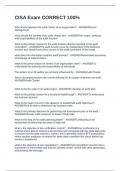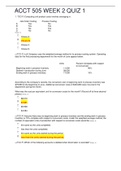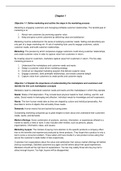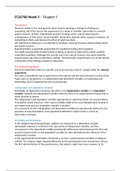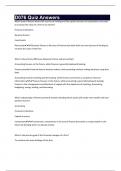English
Grammar:
Present tenses:
Simple present:
= to talk about things that are always true and happen all the time, often,
sometimes, never and repeatedly, repeated actions, truths and facts 1.
Use for commentaries, instructions, stories and jokes2 in an informal style.
The action happens one after another in commentaries and
demonstrations3 and to give instructions4. Timetables, routines and
schedules5.
For example:
1. I live in Bruges, I don’t work on Saturday.
2. First you break three eggs. You add butter, salt and pepper. Then you take a
fork…
3. Kristof passes to Axels, Axels passes to David, David shoots.
4. You have to take your book.
5. Next term starts on 6th April.
To form a simple present:
I/ you/ we/ they works He/she/ it
+
works
Do I/ you/ we/ they work? Does he/she/ it
?
works?
I/ you/ we/ they don’t work He/she/ it doesn’t
-
work
Note:
We don’t use the simple present to talk about the future.
For example:
Axel is coming for a drink this evening.
Present progressive:
= to talk about things that are happening/ actions going on right now1 or
just around the time when we speak2 and changes3 that are happening. Use
to talk about the future4, changing and developing situations5 and
background (things that are already happen when the story starts or continue
through part of the story)6. Present progressive add more information; fixed
plans with time and or place7.
For example:
1. My sister’s living with me just now. I am writing.
2. I’m working hard these days.
3. Prices are going up.
4. I’m seeing Sara tomorrow.
5. The climate is getting warmer, that child’s getting bigger every day.
1
,6. He is walking through the jungle when he meets a gorilla.
7. I’m meeting Sara at the theatre at 8.00.
To form a present progressive:
I am working He/she/ it is working
+
You are working
Am I working? Is he/she/ it
?
Are you working? working?
I’m not working He/she/ it isn’t
-
You aren’t working working
Pay attention:
Some verbs (non-progressive verbs) are often used in simple tenses, not with
the progressive even if we mean ‘just now’.
For example:
to (dis)like – to want – to know – to mean – to love – to hate – to
remember – to rain – to seem – to believe – to forget – to prefer – to
need – to understand – to agree – to belong – to contain – to depend – to
matter – to mind – to own – to realise – to recognize – to suppose – to
exist – to be – to possess – to belong – to fear.
You never say: I’m liking this weather → I like this weather
What is he wanting? → What does he want?
But:
Think – see – look – feel – have
Non-progressive Can be progressive
Think that … = have an opinion Think about … = plan, look at ideas
For example: For example:
I think you’re wrong. I’m thinking about the exams.
See = understand See = meet
For example: For example:
I see what you mean. I’m seeing Sara today.
Look like = seem like Look = turn eyes forwards
For example: For example:
That looks like our train. What are you looking at?
Feel = have an opinion Feel ill/ tired
For example: For example:
I feel you’re making a mistake. I’m feeling ill.
Have = possession Have = action
For example: For example:
I have a headache. We are having a great time.
Note: we don’t use a present tense to say how long something has been
going on.
2
, For example:
You never say: I know her for years → I’ve known her for years
Pay attention:
Only double letters in STRESSED syllables.
For example:
Begin = beginning, forget = forgetting BUT happen = happening, offer = offering
Talking about the future:
The most common way to talk about the future:
Will (= simple future):
= use decide, agree, promise1 or refuse and requests (not sure to
happen), to give or ask information2 about the future, predict and to say
what we think, guess or calculate.3 Decision at the moment4.
For example:
1. We will buy the tickets; you can buy supper afterwards.
2. We will need the money on the 15th.
3. Tomorrow will be warm, with some cloud in the afternoon.
4. There’s the doorbell – ‘OK, I’ll go.
Pay attention:
We always say I don’t think …, will.
For example:
I don’t think she’ll be late.
Note:
- Shall and will → no difference of meaning.
- ‘Won’t’ can be used to talk about refusals (= weigeringen).
Note:
- Will you …? → introduce instructions, orders an requests.
- Would you …? → softer, to make requests more polite.
Note:
- I’ll have … → when we order in cafés or restaurants.
For example:
I’ll have a coffee, please.
To form a ‘will’ sentences:
Will + infinitive.
Going to:
Plan1. Decisions exist now; they are already made.
For example:
1. I’m going to see Christine some time soon.
To form a ‘going to’ sentences:
Going to + infinitive
3
Grammar:
Present tenses:
Simple present:
= to talk about things that are always true and happen all the time, often,
sometimes, never and repeatedly, repeated actions, truths and facts 1.
Use for commentaries, instructions, stories and jokes2 in an informal style.
The action happens one after another in commentaries and
demonstrations3 and to give instructions4. Timetables, routines and
schedules5.
For example:
1. I live in Bruges, I don’t work on Saturday.
2. First you break three eggs. You add butter, salt and pepper. Then you take a
fork…
3. Kristof passes to Axels, Axels passes to David, David shoots.
4. You have to take your book.
5. Next term starts on 6th April.
To form a simple present:
I/ you/ we/ they works He/she/ it
+
works
Do I/ you/ we/ they work? Does he/she/ it
?
works?
I/ you/ we/ they don’t work He/she/ it doesn’t
-
work
Note:
We don’t use the simple present to talk about the future.
For example:
Axel is coming for a drink this evening.
Present progressive:
= to talk about things that are happening/ actions going on right now1 or
just around the time when we speak2 and changes3 that are happening. Use
to talk about the future4, changing and developing situations5 and
background (things that are already happen when the story starts or continue
through part of the story)6. Present progressive add more information; fixed
plans with time and or place7.
For example:
1. My sister’s living with me just now. I am writing.
2. I’m working hard these days.
3. Prices are going up.
4. I’m seeing Sara tomorrow.
5. The climate is getting warmer, that child’s getting bigger every day.
1
,6. He is walking through the jungle when he meets a gorilla.
7. I’m meeting Sara at the theatre at 8.00.
To form a present progressive:
I am working He/she/ it is working
+
You are working
Am I working? Is he/she/ it
?
Are you working? working?
I’m not working He/she/ it isn’t
-
You aren’t working working
Pay attention:
Some verbs (non-progressive verbs) are often used in simple tenses, not with
the progressive even if we mean ‘just now’.
For example:
to (dis)like – to want – to know – to mean – to love – to hate – to
remember – to rain – to seem – to believe – to forget – to prefer – to
need – to understand – to agree – to belong – to contain – to depend – to
matter – to mind – to own – to realise – to recognize – to suppose – to
exist – to be – to possess – to belong – to fear.
You never say: I’m liking this weather → I like this weather
What is he wanting? → What does he want?
But:
Think – see – look – feel – have
Non-progressive Can be progressive
Think that … = have an opinion Think about … = plan, look at ideas
For example: For example:
I think you’re wrong. I’m thinking about the exams.
See = understand See = meet
For example: For example:
I see what you mean. I’m seeing Sara today.
Look like = seem like Look = turn eyes forwards
For example: For example:
That looks like our train. What are you looking at?
Feel = have an opinion Feel ill/ tired
For example: For example:
I feel you’re making a mistake. I’m feeling ill.
Have = possession Have = action
For example: For example:
I have a headache. We are having a great time.
Note: we don’t use a present tense to say how long something has been
going on.
2
, For example:
You never say: I know her for years → I’ve known her for years
Pay attention:
Only double letters in STRESSED syllables.
For example:
Begin = beginning, forget = forgetting BUT happen = happening, offer = offering
Talking about the future:
The most common way to talk about the future:
Will (= simple future):
= use decide, agree, promise1 or refuse and requests (not sure to
happen), to give or ask information2 about the future, predict and to say
what we think, guess or calculate.3 Decision at the moment4.
For example:
1. We will buy the tickets; you can buy supper afterwards.
2. We will need the money on the 15th.
3. Tomorrow will be warm, with some cloud in the afternoon.
4. There’s the doorbell – ‘OK, I’ll go.
Pay attention:
We always say I don’t think …, will.
For example:
I don’t think she’ll be late.
Note:
- Shall and will → no difference of meaning.
- ‘Won’t’ can be used to talk about refusals (= weigeringen).
Note:
- Will you …? → introduce instructions, orders an requests.
- Would you …? → softer, to make requests more polite.
Note:
- I’ll have … → when we order in cafés or restaurants.
For example:
I’ll have a coffee, please.
To form a ‘will’ sentences:
Will + infinitive.
Going to:
Plan1. Decisions exist now; they are already made.
For example:
1. I’m going to see Christine some time soon.
To form a ‘going to’ sentences:
Going to + infinitive
3

